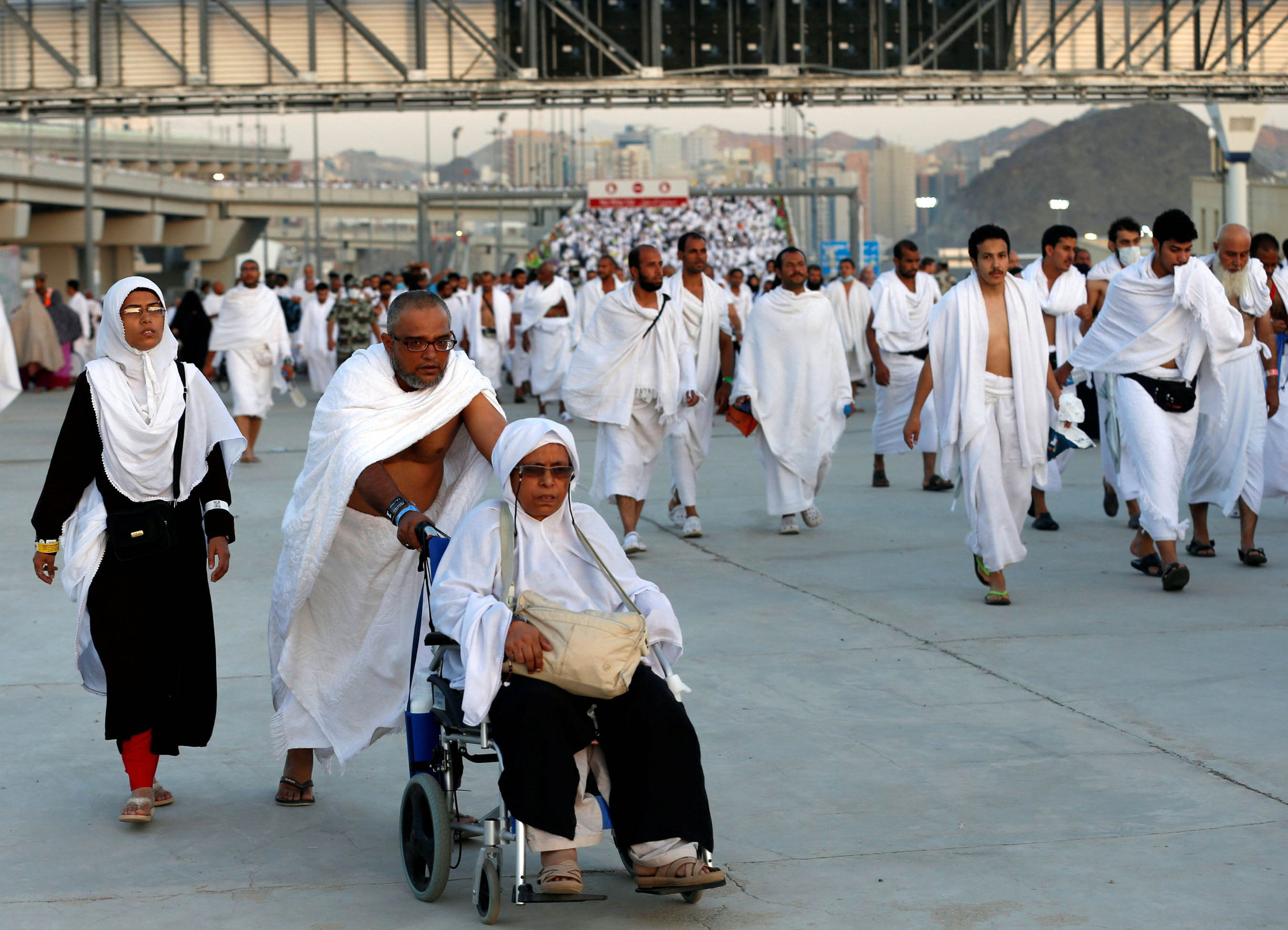MINA, Sept 12:
Muslims from around the world today returned to the scene of last year’s deadly stampede to perform a stoning ritual near Mecca that is the final major rite of hajj.
Rivers of pilgrims flowed on multiple ramps toward the Jamarat Bridge where the “stoning of the devil” is taking place under high security.
Authorities in Saudi Arabia do not talk about last year’s stampede, which killed hundreds around Jamarat on the first day of the ritual.
Riyadh issued a death toll of 769, although figures compiled from foreign officials in more than 30 countries gave a stampede tally of roughly 2,300.
But a number of safety measures have been taken and pilgrims on Monday expressed no concern.
“There has been a clear improvement,” said Saudi pilgrim Ibrahim Ayed, 40, returning for hajj and the stoning for the first time in a decade.
The stoning ritual coincides with Eid al-Adha, Islam’s feast of sacrifice, which is celebrated by more than 1.5 billion Muslims worldwide.
Sheep are slaughtered and the meat distributed to needy Muslims, symbolising the prophet Abraham’s willingness to sacrifice Ishmael on the orders of God, who provided a lamb in the boy’s place at the last moment.
Pilgrims no longer carry out the sacrifice rite themselves but pay agencies to distribute the meat.
The Jamarat ritual, which occurs in Mina at the eastern edge of Mecca, emulates Abraham’s stoning of the devil at three spots in resisting the temptation to disobey God’s order.
On the first of three days of stoning, elevated cameras stationed several metres (yards) apart filmed the pilgrims, most clad in white moving behind coloured flags identifying their groups.
The stoning bridge, which resembles a large multi-storey car park, was erected in the past decade at a cost of more than USD 1 billion (900 million euros) and was designed to prevent overcrowding.
Hundreds of police were stationed on each of the Jamarat’s five floors, linked by escalators, from where pilgrims toss gravel-sized stones against rough stone walls.
More than 1.8 million faithful, most of them from abroad, are performing the six-day hajj, which ends Thursday.
Hajj is one of the five pillars of Islam, which capable Muslims must perform at least once.
Many pilgrims this year expressed faith that new security measures would prevent a repeat of last year’s crush.
Faruk Hamloui, an Algerian who for years has guided his compatriots at the hajj, said “people learned and understood that only organisation and respect for the routes imposed to control the crowds helps to avoid dramas.”
It is a message emphasised by officials.
“Authorities have stressed the need to adhere to directives and not take lightly the movement of pilgrims towards the Jamarat Bridge,” Mahmoud Damanhoori, board member of a local foundation which assists Southeast Asian pilgrims, said. (AGENCIES)


